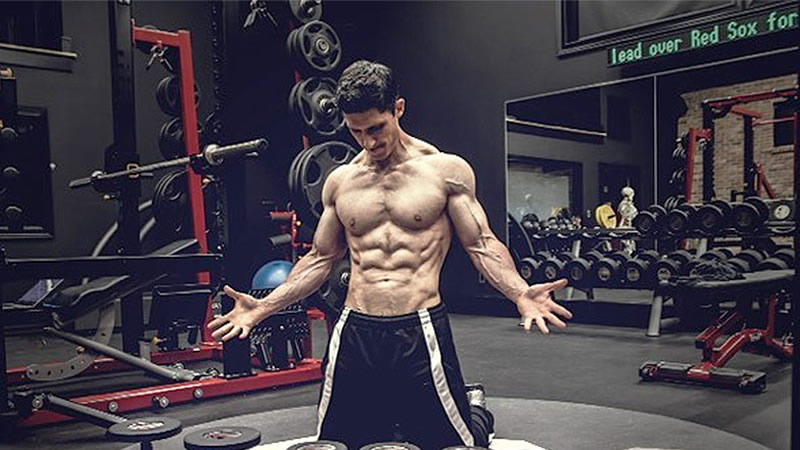Jeff Cavaliere weighs up the pros and cons of letting someone take a role in your workout.
In a recent Athlean-X video, Jeff Cavaliere C.S.C.S. addresses the age-old question of whether you absolutely need to have a spotter for every single rep when you do barbell lifts like the bench press, or if you’re better off making sure other people stay away from your bar.
“A bad spotter can be extremely dangerous,” he says, citing numerous examples of heavy lifts nearly ending in serious injury. On the same note, however, he makes sure to mention that a good spotter could potentially save somebody’s life. There’s a reason the practice is in place; you don’t want a failed rep to result in catastrophic injury.
But spotters are not needed in every single situation, according to Cavaliere. For example, a lifter who is just beginning to learn how to do an exercise does not really have the need for a spotter (if they’re working with the light weights they should be, of course). “They should not be touching your lift,” he says. “If you’re a beginner, you have to learn to command your own body in space before you can command your own body holding an implement in space.” One potential exception here is giving a new lifter a liftoff into a bench press, as this is the least efficient and most vulnerable part of the bench press for your shoulder joints.
But there are, Cavaliere concedes, mental advantages to having a spotter for lifters: “It’s good to have a motivator,” he says. “Saying the right things at the right time can actually encourage you to get the job done. There’s nothing like the reassurance of knowing somebody is there to help you if needed, and that sometimes psychologically triggers someone to do a lot more in the gym than they’re capable of. “
Ultimately, though, Cavaliere believes the question of whether or not you need a spotter depends on the objective of your training.
“If hypertrophy is your goal in training, then you need to understand that a spotter can actually provide something very valuable to you,” says Cavaliere. “They can help you to do forced reps… They’re basically unloading the weight for you.” This type of help can essentially function as a dropset, he explains, if the spotter steps in and provides just 5 or 10 percent assistance to help the lifter complete a rep. Then, if they give 15 or 20 percent, the lifter can add some extra assisted volume to their workout session. “This is going to help in your pursuit of hypertrophy depending on how much you use this technique,” he adds. “You don’t want to overuse it.”
The matter gets a little trickier if your goal is building strength. There is an argument to be made that if you always have a spotter helping you in your heavy lifts, you will be unable to do it without them.
“What I advise in most cases is, instead of looking for a spotter to take you through those areas of a lift that are more difficult, think of other ways you can improve your ability to complete that lift, if strength is your goal,” says Cavaliere. “Think about what accessory exercises you can perform, what other mechanisms you can use.”
The long and short of it is, if you’re not lifting especially heavy or attempting a PR, you might not need a spotter. If you are pushing your limits, you should absolutely have a spotter on hand in case of failure. But take note from what Cavaliere is saying. Make sure that you communicate with you spotter (or spotters) exactly what you’re attempting, and don’t be afraid to tell them how and when you want help. That way, you can stay as safe—and get as strong—as possible.

